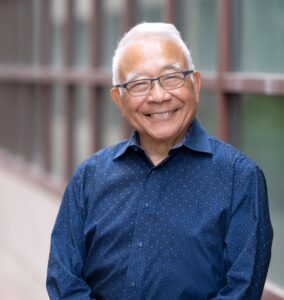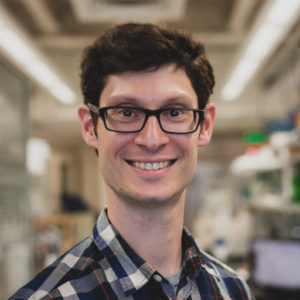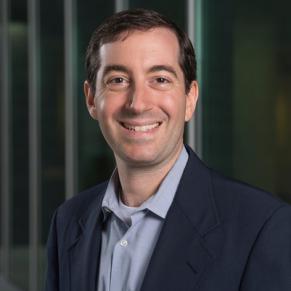EBRC SPA Presents Transitioning to Business Roles Post-PhD Panel
The EBRC Student and Postdoc Association is hosting a Transitioning to Business Roles Post-PhD panel event, where researchers can connect with professionals who work in venture capital, consulting, business development, and technology transfer following a biotech graduate education. Join us virtually on April 6th, 2022 (2:00-3:30pm ET |11:00-12:30am PT) on GatherTown by registering here. Our diverse panel includes a broad range of business perspectives that will provide insights on how graduate students can begin to differentiate in preparation for these career paths.
Click here to view our flyer.
Please contact Eric South (esouth@bu.edu) if you have any questions.
Panelist Biographies
Sarah R. Carter, Ph.D.
LinkedIn
Dr. Carter is the Principal at Science Policy Consulting LLC where she focuses on societal and policy implications of emerging biotechnologies. Trained as a scientist, she has a detailed understanding of synthetic biology and tracks advances in biotechnology as they arise. She has 10+ years of experience working with policy frameworks related to biotechnologies and the increasingly diverse biotechnology industry, and has contributed to many policy projects and processes, including those organized by U.S. government agencies, non-profit and academic institutions, and others. Previously, she worked in the Policy Center of the J. Craig Venter Institute and in the Obama Administration’s White House Office of Science and Technology Policy (OSTP). Dr. Carter is a former AAAS Science and Technology Policy Fellow and a former Mirzayan Fellow of the National Academies. She earned her Ph.D. in Neuroscience from the University of California-San Francisco and her bachelor’s degree in Biology from Duke University.
Travis D’Cruz, Ph.D., MSEM
LinkedIn
Dr. D’Cruz is a Senior Manager at Oncorus with an advanced background in life sciences research and several years of experience in facilitating technology commercialization. Travis is adept at spearheading partnership discussions to execute productive deals, along with experience in leading asset-focused partnering discussions with large pharma, supporting strategic collaborations from initial discussions through post-deal alignment, and supporting technology licensing deals to enhance company pipeline and platforms. Previously, Dr. D’Cruz led and managed all aspects of academic tech transfer for Tufts University’s life science portfolio, and assisted with patent strategy, IP licenses, routine contracts, and alliance management. Dr. D’Cruz earned a Ph.D. in Neuroscience from Penn State University, a Master of Science in Engineering Management at Tufts University, and a bachelor’s degree in Biology from Drexel University.
Eric Keen, Ph.D.
LinkedIn
Dr. Keen joined Flagship Pioneering in 2022 following completion of Flagship’s 2021 Fellows Program. As part of Geoffrey von Maltzahn’s origination team, Eric works to conceive and develop transformative bioplatform companies which address key challenges in health and sustainability. Eric holds a Ph.D. in Molecular Microbiology and Microbial Pathogenesis from Washington University in St. Louis, where he was a National Science Foundation Graduate Research Fellow, and a B.S. in Biology with highest honors from the University of Miami, where he was a Barry M. Goldwater Scholar. Outside of work, Eric enjoys hiking, biking, and almost anything else outdoors.
Anji Miller, Ph.D. CLP RTTP
LinkedIn
Dr Miller is a technology transfer professional with extensive experience of developing and translating early-stage translational research. Her current role at LifeArc involves working with academic and charitable establishments to identify, cultivate, fund, and commercialise early-stage healthcare technologies, focusing on rare diseases and advance therapies.
Prior to joining LifeArc, she worked for several leading establishments, including The Wellcome Trust and St George’s University of London, working at the forefront of academic translational research and knowledge transfer policy. A proponent for professional advancement in technology transfer, Dr Miller directs the LifeArc AUTM Tech Transfer Fellowship, a programme designed to train and assist scientists to become TT professionals, and she is the skills lead for the UK’s recently launched Innovation Hubs for Gene Therapy. An advocate of equality diversity and Inclusion, Dr Miller cofounded Global Equality, Diversity and Equality in Technology Transfer (GEDITT), an initiative missioned to raise awareness and promote EDI in the TT sector.
Dr Miller holds an M.Sc. in Human Molecular Genetics and Ph.D in Cancer Genetics from Imperial College, and M.Sc. and Certificate in IP Law from QMUL. She is a certified project manager, Registered Technology Transfer Professional and Certified Licensing Professional. Dr Miller serves as VP of Communities on the ASTP Board, a member of the BioIndustry Association (BIA) Cell & Gene Therapy Advisory Committee, and the AUTM Equity, Diversity & Inclusivity Committee.



